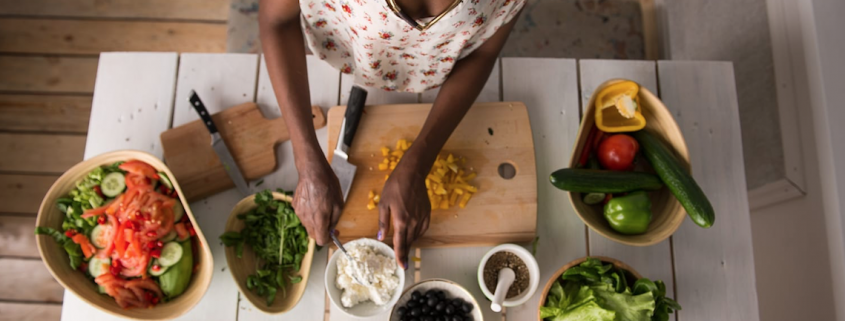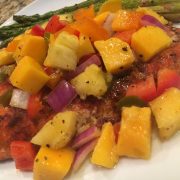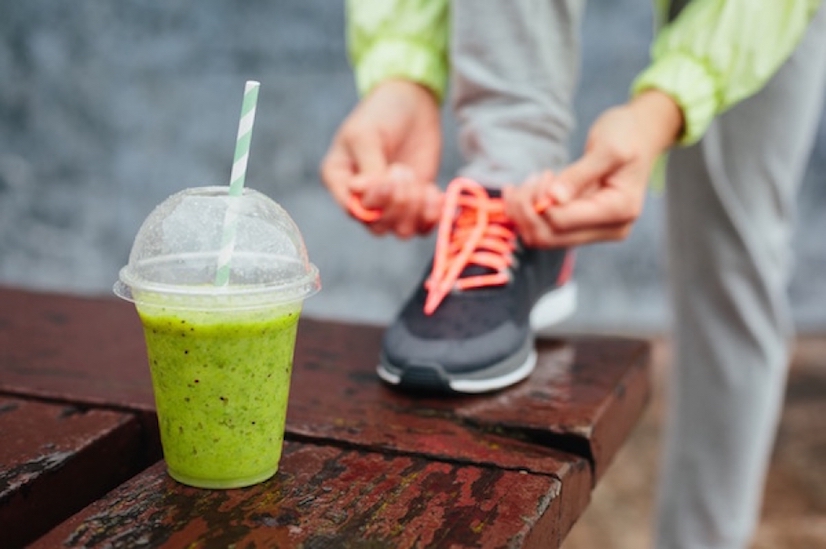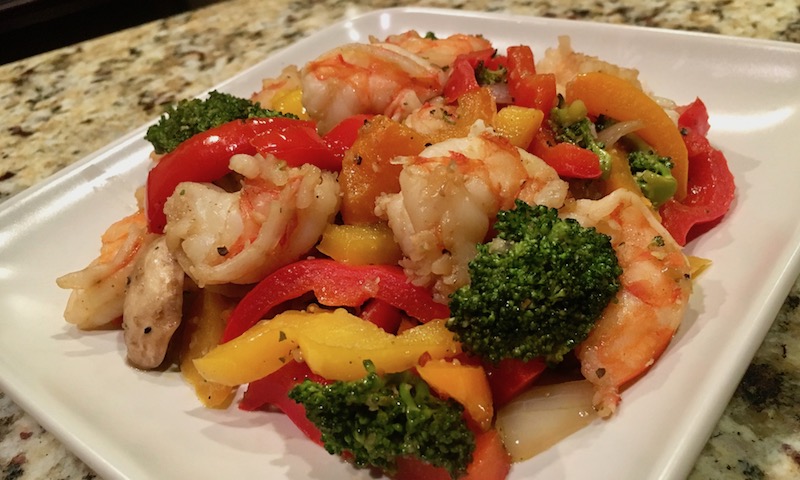I’m often asked my opinion on vegan diets. Honestly, I’m all for them, especially for reasons related to environmental welfare, animal rights, religion and/or chronic disease prevention. In fact, those of you who either know or follow me are likely aware that I spent several years following a fully vegan diet.
I’d originally adopted this style of eating for experimental purposes, but it grew on me. Though I’ve since transitioned back to eating animal-based foods, my past adoption of a vegan diet definitely changed my eating habits for the better.
Related Article: Intermittent Fasting: How I Control My Weight By Eating One Meal a Day
Now, if you’re vegan-curious or a novice adopting this style of eating for weight loss or general health-related purposes, it’s important to understand that eating vegan requires much more than blindly giving up animal-based foods. For optimal health, vegan meals need to be carefully planned and well-balanced so that all essential nutrients are accounted for.
This can be quite difficult to do without counsel from a registered dietician or experienced nutritionist.
Though the many nutrients contained in vegetables, fruits, legumes and other plant-based foods offer an abundance of health benefits, it is increasingly possible for vegans to lack some of the essential macronutrients and micronutrients the body needs to function optimally.
It is important to understand that becoming a vegan requires much more than blindly giving up animal-based foods.
From both my personal and professional experiences I can assure you that this isn’t to be taken lightly. Some of the more common nutritional shortcomings of poorly planned vegan diets may severely impact your health and overall well-being. In the following paragraphs, I’ll highlight six specific nutritional considerations when eating vegan.
Monitoring Your Daily Protein Intake
Protein deficiency is one of the most common risks associated with vegan diets. This is largely due to abstinence from meats, poultry, seafood, eggs, milk, and cheese. Since these food sources contain all essential amino acids they are generally classified as complete (“high-quality”) proteins.
Adequate intake of high-quality proteins is needed to build, repair and maintain practically every tissue and organ in the body—from bone and muscle, to skin and blood. Deficiency is associated with bone and muscle wasting, hair loss and poor wound healing, amongst other effects.
While low intake of complete proteins does pose a risk for deficiency, with careful meal planning, vegans can obtain more than enough.
Plant-based sources of complete proteins include high-quality soy foods like tempeh, tofu, and soybeans. In addition, plant-based foods comprised of ‘incomplete’ proteins (legumes, grains, cereals, nuts and seeds) can be strategically combined to make complete proteins.
For instance, combining grains with legumes or nuts (rice and beans, whole grain bread with peanut butter, or pita bread and hummus) is a classic way to create complete proteins from incomplete sources. You just have to be a little creative.
Related Article: Nutrition Basics: Your Daily Protein Intake
Ensuring You’re Getting Enough Calcium
Calcium is by far the most abundant mineral in the body. Since 99% of the body’s calcium is naturally stored in bone, regular intake is critical for preserving the strength and integrity of this hard and rigid tissue. Since dairy foods are essentially restricted, calcium deficiency is quite common amongst vegans. And, unfortunately, most are unaware of it.
In cases of deficiency, the body basically strips calcium from bone whenever dietary calcium is lacking. Tooth decay (oftentimes with bleeding gums) is one of the earliest signs of this. Over time, deficiency can cause bone density and mass to decrease leading to rapid bone loss, fractures, and, ultimately, disability.
Related Article: The Importance of Getting Enough Dietary Calcium
Nevertheless, with careful planning and adequate supplementation vegans can certainly avoid calcium deficiency. There are many non-dairy, vegan-friendly foods that contain calcium including dark leafy green vegetables, high-quality soy foods, and fortified beverages (soy milk and rice milk).
However, it’s important to understand that the calcium housed in some of these foods is not fully absorbed by the body so there’s often a need for vegans to take in a lot more to match that which is contained in dairy foods.
Related Article: Seven Easy Ways to Increase Your Calcium Intake without Drinking Milk
Maintaining Healthy Vitamin D Levels
Vitamin D is needed for intestinal absorption and metabolism of calcium making it crucial for the formation and maintenance of strong bones and teeth. Large quantities of this vitamin are generally acquired from sunlight exposure but it must also be obtained from dietary sources.
Since vitamin D is chiefly housed in oily fish, egg yolks, and dairy foods, vegans can easily become deficient. This is not a good thing as prolonged deficiency can lead to a host of health problems including bone disease, muscle weakness, metabolic disorders, heart disease and even cancer.
The risk of deficiency is best avoided with regular intake of fortified foods including soy milk. Supplementing with vitamin D is another option. But, it’s important, to check with a healthcare provider before supplementing, as taking in too much can cause unhealthy levels of calcium to build up in the bloodstream.
Related Article: Vitamin D: Why You Need it and How to Get It
Keeping Tabs on Your Vitamin B12
Vitamin B12 is another common deficiency amongst vegans, as it is naturally found in animal-based foods including meats, poultry, fish, eggs, and dairy products. This essential vitamin plays a major role in production of red blood cells, which are responsible for transporting oxygen throughout the body for energy production.
Through its energy producing effects, vitamin B12 can support weight loss by improving endurance and the ability to engage in exercise and other types of physical activity. Insufficient amounts can lead to inadequate macronutrient metabolism and consequently a lack of energy, extreme fatigue, and general weakness.
While most experienced vegans consume enough B12 to avoid deficiency. I still can’t emphasize enough the importance of adequate intake. Vegans can greatly minimize the likelihood of deficiency by supplementing with vitamins or fortified foods, which may come in the forms of soy beverages, meat-substitutes, and yeast extracts.
Other possible options include vitamin B12 shots, patches and sublingual supplements, each of which should be discussed in advance with your healthcare provider.
Related Article: Supplements Are No Substitute for Good Nutrition
Being Aware of Iron-Deficiency and Anemia
Iron is an essential mineral that’s critical for healthy production of red blood cells. Notably, it is a chief component of hemoglobin, which is chiefly responsible for transporting oxygen from the lungs to the cells, tissues and organs of the body.
Animal-based foods like red meat, liver and other organ meats, seafood, and egg yolks are rich sources of iron, none of which are consumed by vegans. Therefore, the risk of deficiency is constantly lurking. Anemia is one of the most common side effects of iron deficiency, and vegans are at increased risk due to abstinence from iron-containing animal-based foods.
It is possible for vegans to obtain more than adequate amounts of iron by regularly consuming a wide array of soy foods, dark leafy green vegetables, legumes, nuts and seeds. Soybeans, spinach, lentils, olives and sesame seeds are among the richest sources.
However, it’s important to understand that the type of iron housed in these foods (non-heme iron) is not as readily absorbed as that which is contained in animal-based foods (heme-iron).
Related Article: Red Meat: Nutritional Friend or Foe?
Taking in Adequate Amounts of Zinc
Zinc is an important micronutrient that influences various aspects of the immune system. It is especially crucial for normal development and function of white blood cells, which are responsible for destroying and removing harmful bacteria, viruses, and fungi from the body. Through its antioxidant effects, zinc also plays a key role in controlling inflammation.
Deficiencies in zinc can impair immune function and increase the risk of infections. Other consequences include anemia, delayed growth and developmental issues, brain and nervous system impairments, hair loss, skin lesions, and poor wound healing.
Since zinc is primarily contained in meats and seafood, vegans are especially susceptible to deficiency.
But, interestingly, zinc deficiency affects a lot of people who consume animal-based foods as well. Fortunately, with careful planning vegans can obtain ample amounts of zinc by consuming a large variety of legumes, nuts and seeds. Some of the best sources include lentils, pumpkin seeds, and sesame seeds.
Related Article: How Pescatarian Diets Can Be Good for Your Health
With careful planning and follow-through, vegan diets can be well-balanced in all the vital nutrients required for good health.
And, there you have it—Six nutritional considerations when eating vegan.
Although adopting vegan diets can increase the risk of macronutrient and micronutrient deficiencies like the ones I’ve described, for many, the benefits greatly outweigh the risks. Vegans generally have lower body weights, cholesterol levels, blood sugar levels, and blood pressures, all of which can help reduce the risk of chronic diseases.
With careful planning and follow-through, vegan diets can be well-balanced in all the vital nutrients required for good health. Still, I highly recommend doing so under supervision from a registered dietitian, nutritionist or other trained healthcare professional.







